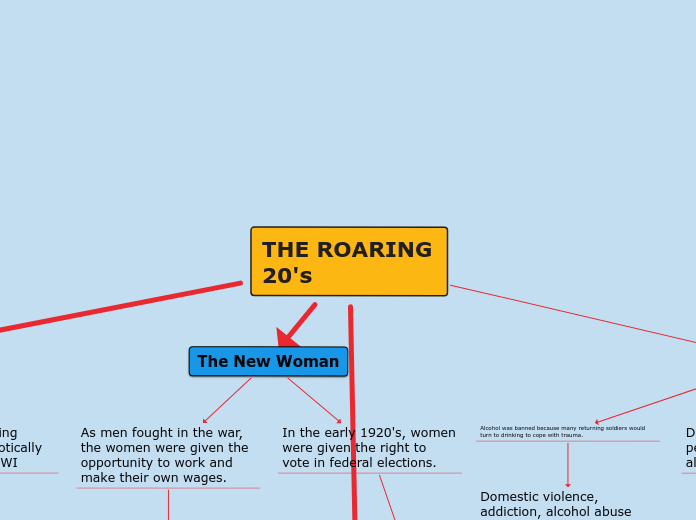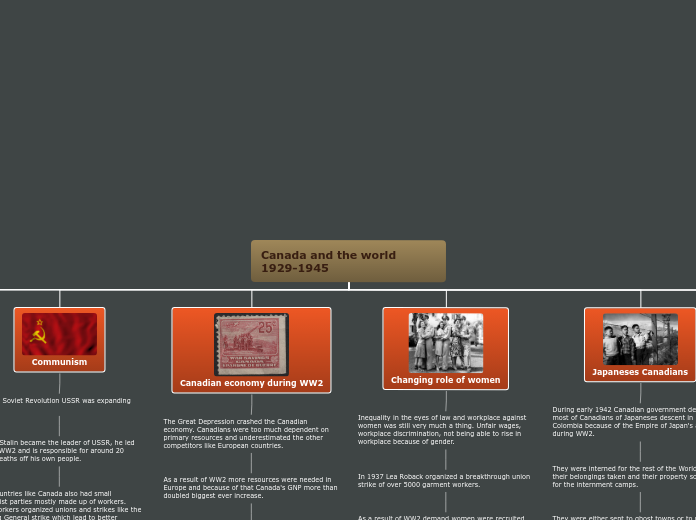The 20's and 30's Era
The Roaring 20's was about prosperity and development
The Dirty 30's is the Economic Drought of Canada
Subtopic
The Dirty 30's
Shipping Goods
Canada's dependece
Lack of buyers
Wheat, forestry, fish were not being sold
High tariffs
Farm industries declined
Not enough money to sustain
International trade decreased
Every country faced this depression
No money to spend anywhere
USA provided many resources
Reasons for the Great Depression
Overconsumption
High production
Too much excitement
Drained majority of money
Stock market
Consumerism
High demands
Overstock
Expanded too quickly
No money, no jobs
Import rates dropped 55%.
Unemployment rate peaked to 32% of Canadian population.
Money shortage
Great depression
Social and economic conditions were poor at this time.
The 20's crippled the lives of those living in the 30's.
Homeless, hungry and unhappy
October 29, 1929
Black Tuesday
The day the world's economy plummeted
Economy crashed, millions of dollars lost, internationally
Banks unable to return deposited money.
THE ROARING 20's
T.E.A.C.H Aspects
Healthcare Advancements
Improved ethics
Animal testings were endorsed less
Frederick Banting
Insulin for diabetes
Cities
Businesses/Corporations
Housing
Development of city
Urban Sprawl
Expansion and development
Arts and media
Radios, magazines, literature
Visual Arts
Group of Seven
Movies
Economical growth
Businesses growing
Canadian goods and industry in demand
Technological advances
Radios
Model T
Telephone
Prohibition
Canadian government repealed the prohibition laws.
During prohibition, many people would smuggle alcohol.
Speakeasys, blind pigs, underground bars.
Alcohol was banned because many returning soldiers would turn to drinking to cope with trauma.
Domestic violence, addiction, alcohol abuse and money loss.
The New Woman
In the early 1920's, women were given the right to vote in federal elections.
As men fought in the war, the women were given the opportunity to work and make their own wages.
Flappers defied their traditional mannerisms to be more bold.
Canadian Pride
Citizens and returning soldiers living patriotically in the success of WWI
After WWI, Canadians were more patriotic as a result of Canada's individual recognition.
Given individual credit
Vimy Ridge









